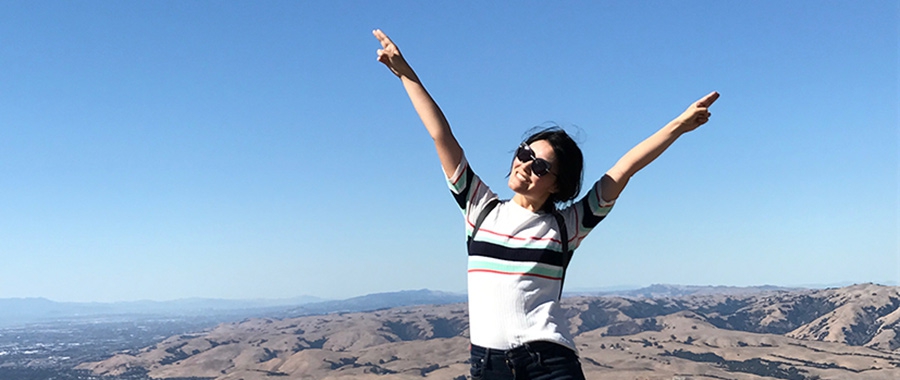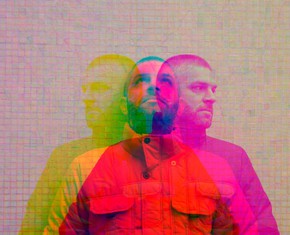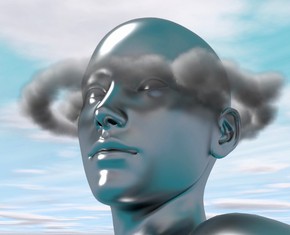The views expressed in our content reflect individual perspectives and do not represent the authoritative views of the Baha'i Faith.
Three weeks ago, I experienced a major difficulty in my life. Without spending time describing the details, let us just call it a “storm.”
1. Weathering the Storm
That “storm” caused a major setback for me. Before it happened, even though the path was not straightforward, my life seemed to be heading exactly the where I wanted: coming from a 3rd-tier city in China, through ambition and hard work I competed through one of the most crowded college entrance exams in the world to enter one of the best universities in China. Apart from receiving a great education in China, I also volunteered in West Africa, studied abroad in Paris and got international work experience in the Middle East, Europe and North America. At the age of 25, I have already lived in six countries without any financial support from family or loans, and have a very promising career in one of the super blue chip companies in the world.
The “storm” happened because I made a mistake in life. As Edison said, “I’ve just found 10,000 ways that won’t work.” I learned a ton of things from that storm. However, I also suffered a great deal of emotional depression and feelings of powerlessness from it. I believe I’m not alone. Everyday human beings make mistakes in life and grow stronger as a result.
Somehow, my “growing” came in a spiritual way. The second day after the “storm,” I became a Baha’i:
O ye beloved of the Lord! Beware, beware lest ye hesitate and waver. Let not fear fall upon you, neither be troubled nor dismayed. Take ye good heed lest this calamitous day slacken the flames of your ardour, and quench your tender hopes. Today is the day for steadfastness and constancy. Blessed are they that stand firm and immovable as the rock and brave the storm and stress of this tempestuous hour. They, verily, shall be the recipients of God’s grace; they, verily, shall receive His divine assistance, and shall be truly victorious. – Abdu’l-Baha, Selections from the Writings of Abdu’l-Baha, pp. 17-18.
Entering a new Faith is always a very personal journey. Growing up in China with no religious background, being an atheist for all my pre-Baha’i life, I could never have imagined myself—a person who strongly follows logic and rationality, believes in the dignity of independent thinking and also being practical in the real world—would ever turn to God and follow a religion.
The obstacles come from two aspects. First, growing up as a post-90 generation (people who are born after 1990) in China, we believe this is a “self-made hero” era. The new generation is taking over the old world with the rise of the internet shaking the social structure and economic foundation in China. (Can you imagine, even in the remote rural areas in China, people buying things with cashless payment Apps on smartphones?) The new opportunities released by the internet gives the new generation all the possibilities.
Second, the social pressure makes a typical Chinese young person like me, extremely practical, without much space and breath to think about our true selves and a spiritual life. The establishment of new China in 1949 rebuilt the country’s faith in socialism and discouraged many forms of religious beliefs during the Cultural Revolution. Today, solely passing through the highly competitive exams, squeezing into job hunting competitions, then worrying about how to afford an apartment in China within 30 years (the real estate prices in China increased at a double-digit growth rate year over year in the past decade), and how to get married before the age of 28 if you are a woman (otherwise you will be called a “left-over” woman) is as stressful as it sounds.
When you are facing the harsh game rules and realities of the world we are living in, it’s hard to think about “who I am” and “what do I live for” before everyone else is telling you who you should become for your own survival and security in this world.
I feel extremely lucky about my experience living abroad. Having the blessing to live in multiple countries at a young age through study and work, I observed so many different cultures and societies and enjoyed the freedom of being away from my native culture and environment while I built my values about life and the world. The contrast and freshness of new environments brought me a lot of questions I asked myself, and being away from my culture provided me the space to think about these questions. What are my values and passions in life, and what am I striving for in life as an individual?
Now I look back on these experiences, I can see that seeking the answers to these questions helped me to come to the Baha’i Faith in various ways.
The more difference I see in different cultures and nations, the more I realize how much we are sharing in common and how all human beings are one, no matter whether we follow Buddhism, Islam or Christianity. The more prejudice I hear from people (and experience myself), the more I realize prejudice comes from ignorance. The one who sees less is more likely to pay less attention to understand and sympathize with another nation/culture and the importance of unity of humankind.
The more contrast I experience in affluent material life and insufficient material life, the more I understand that living in a luxurious hotel for a year alone will not make a person happier than sharing a 13-square-meter studio with a loved one. The more conflict I observe at work and in life, the more I see why consultation could help us bridge the gap of understanding, speak up with our honest opinions and let go of the tendency of being defensive due to our ego. The more beautiful things I see, the more I develop my ability to appreciate the beauty in all life. Trying to understand all of the things that are beyond my ability to describe, and above the rules we human beings create, I have started to encounter a spiritual world.
2. Some Questions and a Silent Inner Debate
Even though all of these past experiences in life helped me to resonate with the Baha’i teachings, a few hours before I declared, I was still asking myself questions. This is it? From now on, I will fully devote myself to God? Is it right of me to seek the peace and solace of religion just because bad things have happened in my life? Will this be a sustainable belief I can hold onto for the rest of my life? What if I’m just being vulnerable right now?
These are not easy questions to answer. I declared my faith following my gut feeling. The amazing part was that, after I declared, all those doubts I had reconciled in my heart and mind. God is the Merciful, the Forgiver, and the Wise, so why shouldn’t we turn to Him when we reflect on mistakes in life, and seek guidance from Him?
At a time when the sombre night of ignorance, of neglect of the divine world, of being veiled from God, had overspread the earth, a bright morning dawned and a rising light lit up the eastern sky. Then rose the Sun of Truth and the splendours of the Kingdom were shed over east and west. Those who had eyes to see rejoiced at the glad tidings and cried out: ’O blessed, blessed are we!’, and they witnessed the inner reality of all things, and uncovered the mysteries of the Kingdom. Delivered then from their fancies and their doubts, they beheld the light of truth, and so exhilarated did they become from draining the chalice of God’s love, that they utterly forgot the world and their own selves. – Abdu’l-Baha, Selections from the Writings of Abdu’l-Baha, p. 32.
Though I can still imagine the atheist part of me would say: “Aren’t you just using religion to explain all difficult things in life? Avoiding the pain of thinking and putting the entire burden on the shoulders of an imaginary figure called ‘God’?”
To explain myself a little here, I used to think of God as an imaginary figure, a smiley person with a halo on top, when I learned this word as a kid. The English word “God” translated in Chinese as “Shang Di” (上帝), which literally means “the above emperor” in Chinese. It easily connects me with a humanized figure, due to the nearly three-thousand-year history of imperialism in ancient China. The other translation of “God” called “Shen”(神), is more rooted in Chinese culture, meaning “worshipping the one who created the flashing light,” which I think is a more appropriate translation.
Today I would tell the atheist me that is not right. God is not a humanized figure. God is beyond our ability to imagine, understand and visualize. A beautiful metaphor I heard from a mentor explains it well—when we are fetus in mother’s womb, we cannot understand how the world with light, color and warmth will feel like until we are born. In this world, we cannot imagine God in any shape or figure that we can understand within the limits of our imaginations.
Be thankful to God for having enabled you to recognize His Cause. Whoever has received this blessing must, prior to his acceptance, have performed some deed which, though he himself was unaware of its character, was ordained by God as a means whereby he has been guided to find and embrace the Truth. As to those who have remained deprived of such a blessing, their acts alone have hindered them from recognizing the truth of this Revelation. We cherish the hope that you, who have attained to this light, will exert your utmost to banish the darkness of superstition and unbelief from the midst of the people. May your deeds proclaim your faith and enable you to lead the erring into the paths of eternal salvation. – Baha’u’llah, quoted by Shoghi Effendi, The Dawn-Breakers, p. 586.
3. The Process of Going through Difficulties
The process of going through difficulties accompanied by my new Faith is a very special journey for me. Following Baha’u’llah’s teachings, I feel like I’ve learned a lot of life’s wisdom to take away as I started a new life as a Baha’i:
First, the process of prayer and meditation cleans my mind and soul, and helps me let go of my tendency to control. Using the terms of improvisational performance (I started improv training a few months ago), prayer and meditation helps me accept whatever is on the stage and let go of any tendency to control what is going to happen. This is also part of inspirations that I got from my improv training—that life should not be a play that has a written script in mind. We should take it as an exciting journey, and embrace every moment of spontaneity and surprise.
When we try to control everything, we are just boosting our egos. Ego can be especially challenging for people who are driven by sense of achievement. No matter what we do, we should see life as a service to uplift ourselves and contribute the progress of humanity. In that way we stay humble, remembering why we live this life, while still striving for excellence and delivering outstanding results:
In brief, while nature invites man to the baser propensities of ego and self, the Love of God attracts him to the worlds of sanctity and holiness, justice and generosity, mercy and humanity. – Abdu’l-Baha, Star of the West, Volume 4, p. 182.
The second thing I learned is about the power of gatherings, devotions and consulting—in other words, the power of community. The concept of community here is not limited to the Baha’i community, but refers to a bigger supportive relationship network we all develop in our lives.
When I went through my difficulties, praying together with my Baha’i friends brought me so much comfort and strength that I was deeply moved by the sense of unity and solidarity. My understanding of the Baha’i model of consultation also encouraged me to be more courageous in reaching out to my other trusted friends in life. Showing vulnerability and admitting mistakes is not as easy as it sounds—however, the understanding, care and unconditional love I received from the relationships I have developed in life remind me of the importance of love, whether from family or friendship.
The third thing I learned is the concept of confirmation from God. Prayer and meditation helps us to clear the mind and see the bigger picture of life. However, only through acting can I make things happen. The concept of confirmation from God teaches me how to be detached from results, and focus on my actions. I’ve learned to think about what I want to pursue as a calling in life, to act on the best plans in my understanding, and to put in 100% efforts—then detach from the result and wait for confirmation from God: “O God! Thou art more friend to me than I am to myself,” as Abdu’l-Baha said beautifully. Having faith in God’s love and trust in his assistance helps me to focus on my actions and let go of the anxiety of control.
4. Is Life Meaningful?
Having said all that, do I believe pain in life is meaningful? I don’t think so. Pain itself does not mean anything. Making repeated mistakes is something we should avoid in life. Only when we reflect on the mistake objectively and thoroughly, does the pain transform into a great learning opportunity in life through which we get closer to God:
The confirmations of the Spirit are all those powers and gifts which some are born with (and which men sometimes call genius), but for which others have to strive with infinite pains. They come to that man or woman who accepts his life with radiant acquiescence. – Abdu’l-Baha, Abdu’l-Baha in London, p. 120.
As a “baby” Baha’i, I found writing down my thoughts about my nascent understanding of the Faith very challenging, since I’m still learning about the Baha’i teachings, which will be a lifetime journey. However the process of thinking, reflecting and writing it down has been extremely helpful and meaningful for me. One month later, one year later … our brain tends to easily forget the things we want to remember and moves on. Even though many thoughts are immature, I believe it is a special mark in my life to remember how it feels to become a Baha’i and declare myself ready to live a Baha’i life. Hopefully, these thoughts will inspire you, too.
You May Also Like
Comments

















The purity and depth of your spirit is stunningly apparent. May your light shine out and envelope all those around you so you may infect them with loving beauty for spiritual life.